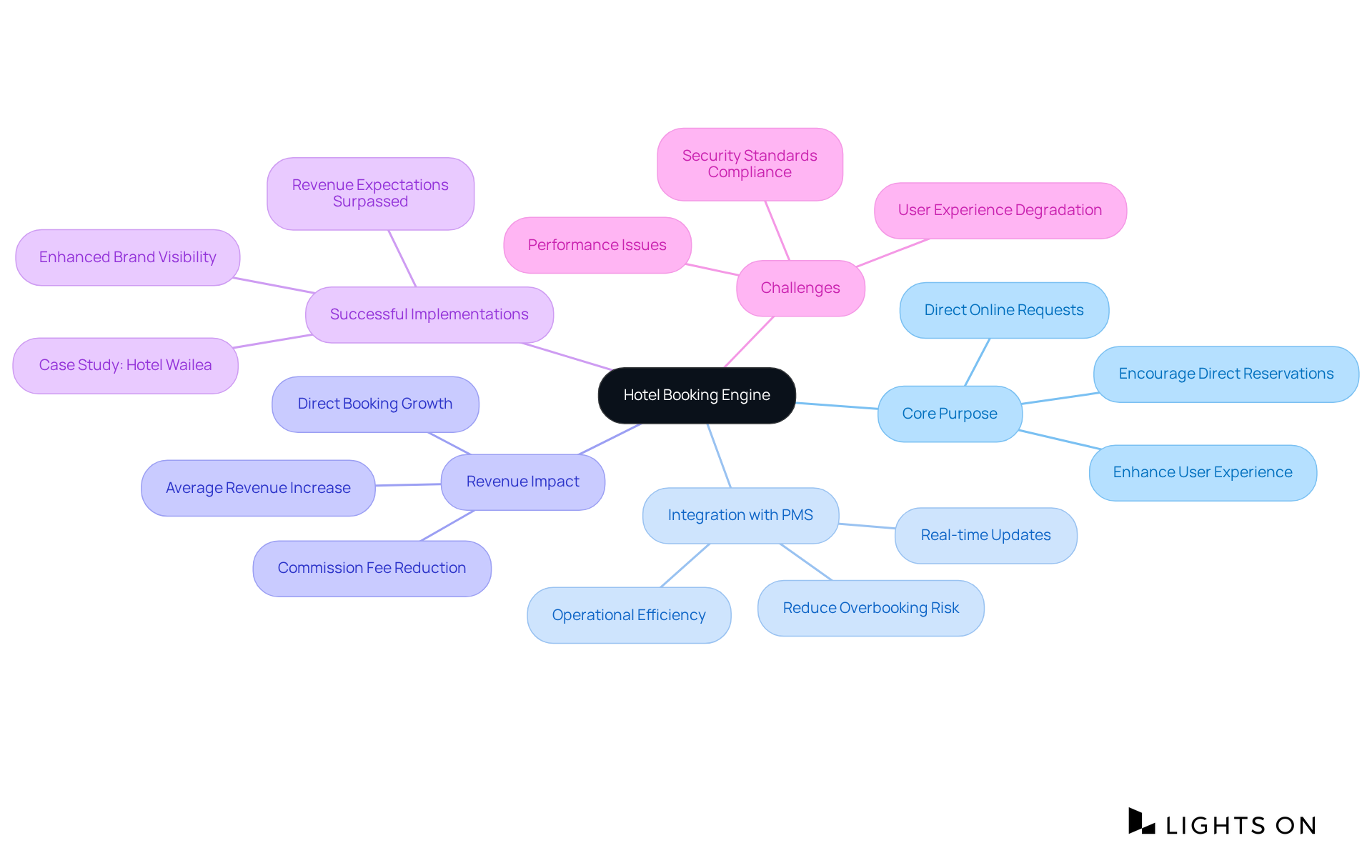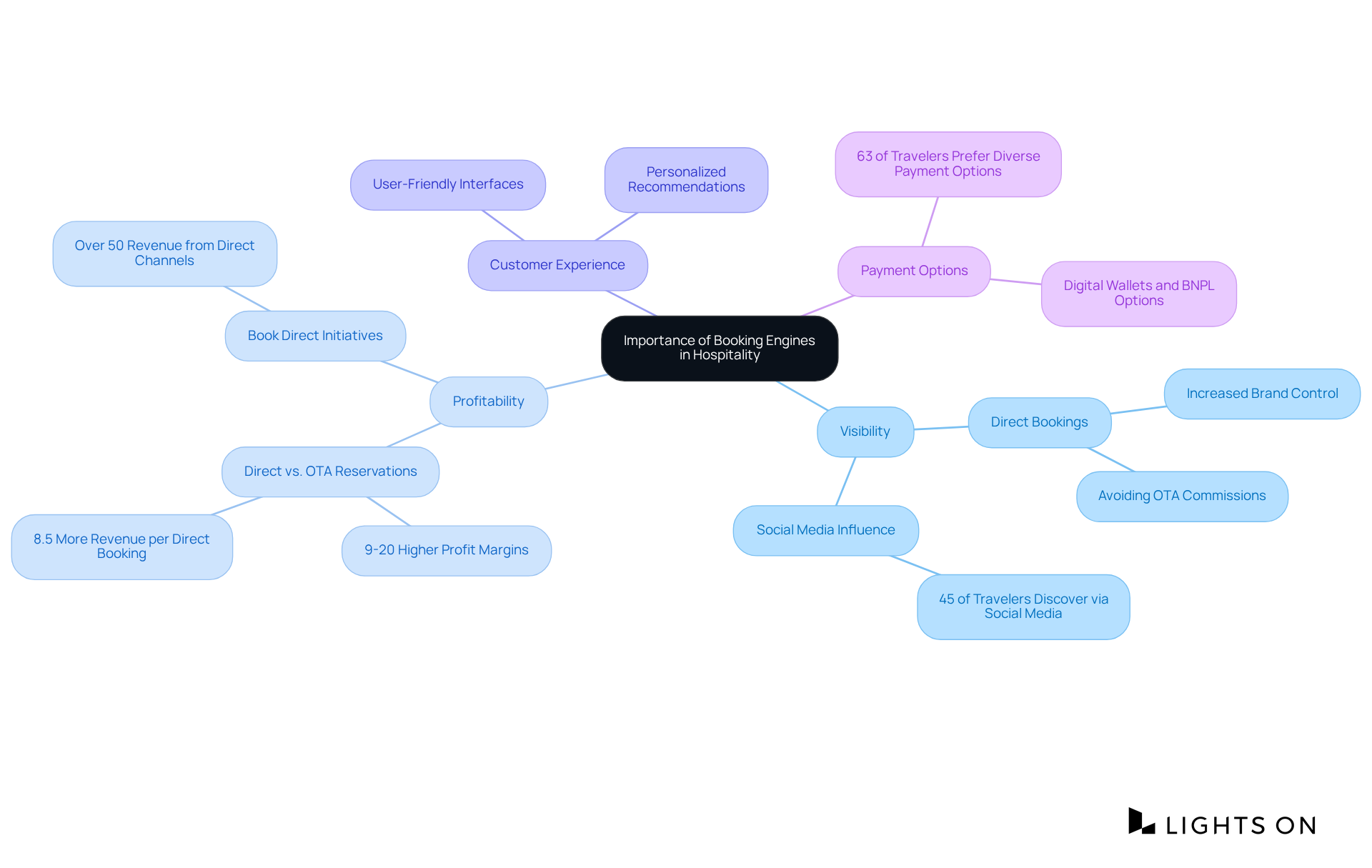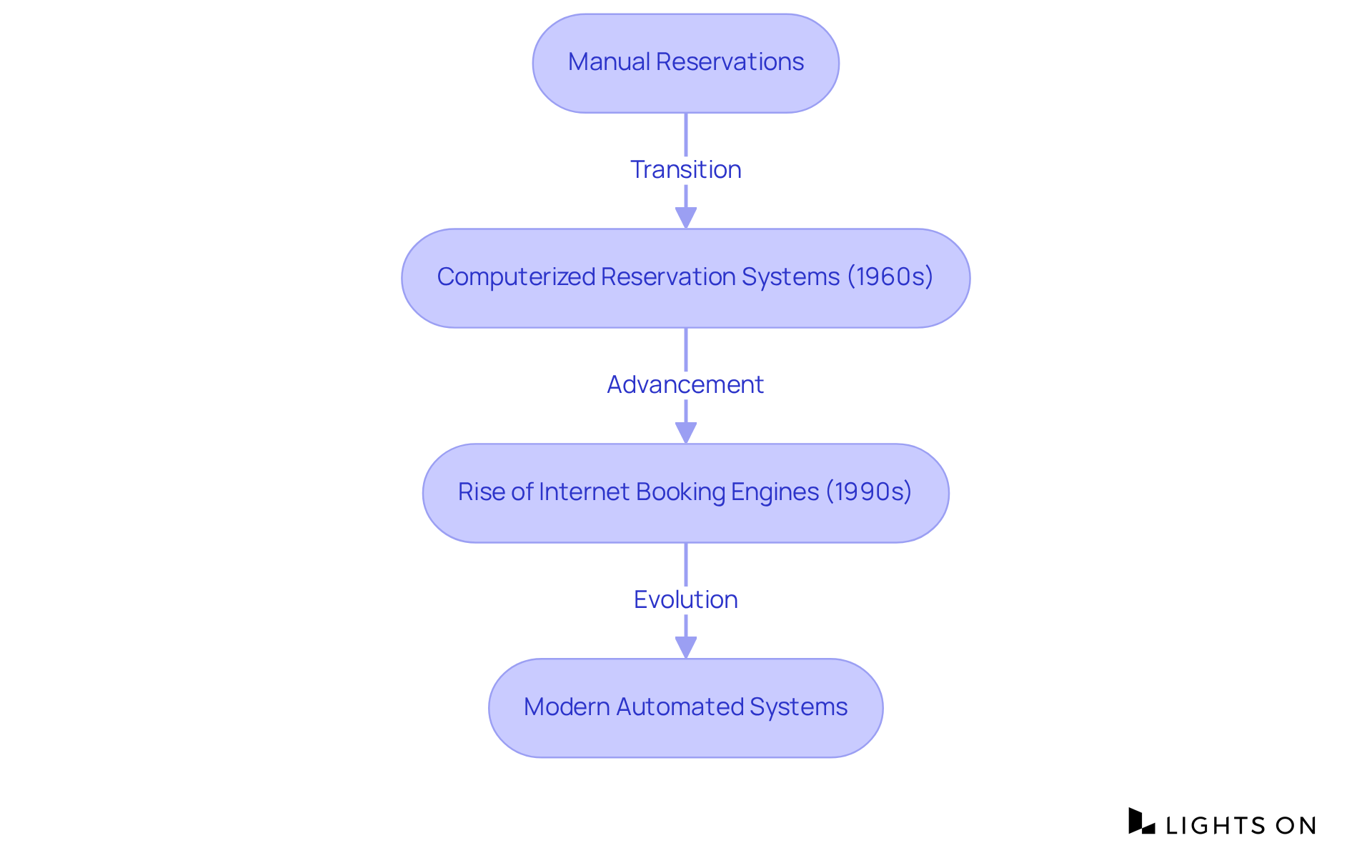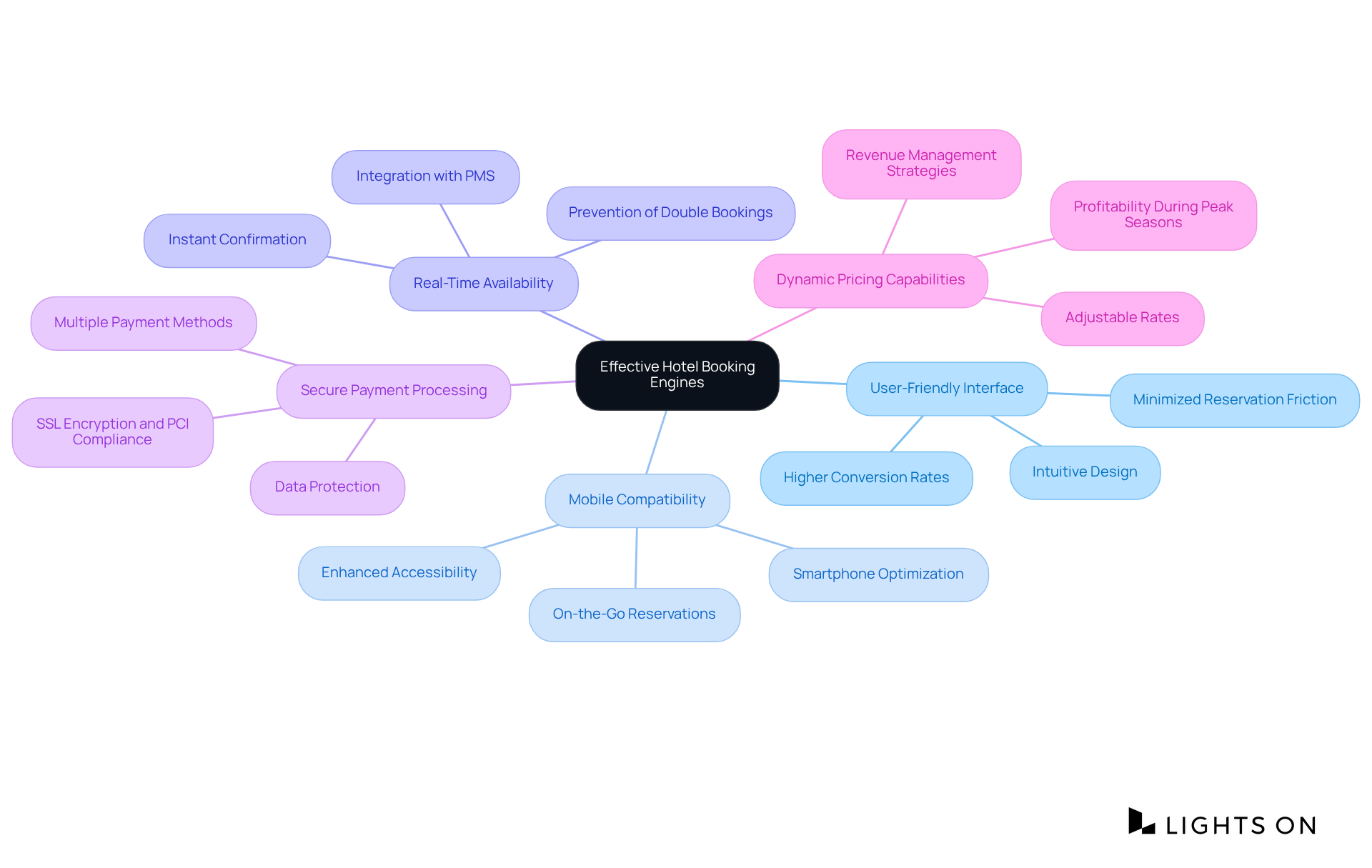This article delves into the features and significance of hotel booking engines, underscoring their critical role in facilitating direct online reservations for accommodations. It articulates how these engines not only streamline the booking process but also enhance user experience and bolster profitability. By enabling real-time inventory management and dynamic pricing, hotel booking engines collectively encourage more direct bookings while simultaneously reducing reliance on online travel agencies. Such advancements are essential for hotel and restaurant owners seeking effective solutions to their operational challenges.
The hospitality industry is experiencing a transformative shift as hotels increasingly prioritize direct online bookings to enhance revenue and improve guest experiences. At the heart of this evolution lies the hotel booking engine—a powerful tool that not only streamlines reservations but also establishes a direct connection between accommodations and travelers. As reliance on third-party booking platforms wanes, a crucial question emerges: how can hotels effectively leverage these engines to maximize profitability and customer satisfaction while navigating the complexities of a competitive market?
A hotel booking engine is an essential software application that empowers accommodations to accept direct online requests via their websites. This digital platform serves as a hotel booking engine that allows prospective visitors to , assess pricing, and finalize reservations in real-time. The primary aim of a hotel booking engine is to simplify transactions, enhance user experience, and encourage direct reservations, which are crucial for maximizing accommodation revenue. In 2025, it is anticipated that more than 70% of accommodations will use a hotel booking engine for direct bookings, indicating the sector's transition towards improving direct visitor interaction.
By integrating seamlessly with property management systems (PMS), the hotel booking engine maintains real-time updates on inventory and pricing, significantly reducing the risk of overbooking and enhancing operational efficiency. This integration is vital, as it ensures that hotels can provide precise information to visitors, fostering trust and satisfaction. Additionally, a hotel booking engine can showcase tailored promotions and exclusive deals, potentially enhancing average revenue per guest by as much as 14%, further encouraging direct reservations.
Successful implementations of reservation systems, such as the hotel booking engine utilized at Hotel Wailea, have demonstrated their effectiveness in driving direct revenue. After implementing advanced reservation strategies, the hotel reported surpassing revenue expectations and significantly enhancing brand visibility. By automating the reservation process with a hotel booking engine, these systems not only lessen the workload on front-desk staff but also improve the overall visitor experience, making it easier for travelers to secure their accommodations.
However, it is important to note that reservation platforms can experience performance degradation during high traffic, which may affect user experience. Furthermore, ensuring adherence to security standards like PCI DSS is essential for safeguarding sensitive information and preserving client trust.
In conclusion, the significance of hotel booking engines in enabling direct online reservations cannot be overstated. They serve as the foundation of contemporary hospitality management, allowing establishments to thrive in a competitive environment while maximizing profitability and customer satisfaction.

In the current digital era, a reservation system stands as a cornerstone of an establishment's online visibility and promotional strategy. Given that a significant portion of travel income is generated through internet reservations, accommodations must leverage efficient booking systems to attract and retain visitors. The not only streamlines the reservation process but also enhances the visitor experience by providing a user-friendly interface and secure payment options.
Furthermore, they empower accommodations to implement dynamic pricing strategies, manage inventory effectively, and reduce reliance on online travel agencies (OTAs), which often impose steep commission fees. By encouraging direct reservations, accommodations can significantly improve their profit margins—direct reservations yield 9-20% higher profit margins than OTA reservations, with revenue per direct reservation being 8.5% greater than in 2023—while fostering stronger relationships with their guests.
For instance, independent accommodations that have launched 'Book Direct' initiatives have reported increases in direct reservations, with some achieving over 50% of their total revenue from these channels. Additionally, 63% of travelers indicate that the availability of diverse payment options influences their decision to book directly, underscoring the critical need for payment flexibility.
As the hospitality sector evolves, investing in a robust reservation system is imperative for boosting revenue and enhancing guest satisfaction.

The evolution of accommodation reservation systems is rooted in the early hospitality industry, where arrangements were manually orchestrated via phone or face-to-face interactions. The advent of computerized reservation systems (CRS) in the 1960s represented a pivotal shift, empowering accommodations to streamline their reservation processes with greater efficiency. As technology advanced, the rise of the internet in the 1990s ushered in the development of hotel booking engines, which enabled guests to secure their stays directly through lodging websites. Today, boast sophisticated features such as mobile compatibility, real-time inventory management, and integration with diverse distribution channels. This evolution reflects a significant industry transition towards automation and an enhanced user experience, underscoring the importance of adopting these modern solutions for improved operational effectiveness.

Effective hotel booking engines are characterized by several essential features that significantly enhance both functionality and the user experience.
The hotel booking engine provides multi-language and currency support, catering to a global audience and enriching the reservation experience for international visitors. This inclusivity can significantly boost engagement and conversion rates, especially when currency conversion options are also available.
These features not only enhance the overall booking experience for guests but also empower hotels to implement effective revenue management strategies, ultimately driving growth and profitability.

The role of hotel booking engines in the hospitality industry is pivotal, serving as the backbone for direct online reservations and enhancing the overall guest experience. These sophisticated systems not only streamline the booking process but also empower hotels to manage their inventory effectively, optimize pricing strategies, and foster direct relationships with guests. As the industry continues to evolve, the importance of adopting robust booking engines becomes increasingly clear, particularly for maximizing revenue and ensuring customer satisfaction.
Throughout the article, key features of effective hotel booking engines have been highlighted, including:
Each of these elements contributes significantly to enhancing the user experience and operational efficiency, ultimately leading to increased direct bookings and higher profit margins for hotels. The evolution from manual booking systems to automated solutions underscores the necessity for accommodations to embrace technology in order to remain competitive in a rapidly changing landscape.
In light of this information, it is crucial for hotel operators to recognize the transformative potential of investing in a reliable hotel booking engine. By doing so, they not only improve their operational effectiveness but also position themselves to thrive in an increasingly digital marketplace. Embracing these modern solutions will not only enhance guest satisfaction but also solidify a hotel's standing in the competitive hospitality sector, paving the way for sustainable growth and success.
What is a hotel booking engine?
A hotel booking engine is a software application that allows accommodations to accept direct online requests through their websites, enabling visitors to check room availability, assess pricing, and finalize reservations in real-time.
What is the primary purpose of a hotel booking engine?
The primary aim of a hotel booking engine is to simplify transactions, enhance user experience, and encourage direct reservations, which are essential for maximizing accommodation revenue.
How is the hotel industry expected to change by 2025 regarding booking engines?
It is anticipated that by 2025, more than 70% of accommodations will utilize a hotel booking engine for direct bookings, reflecting a shift towards improving direct visitor interaction.
How does a hotel booking engine integrate with property management systems (PMS)?
A hotel booking engine integrates with PMS to maintain real-time updates on inventory and pricing, which reduces the risk of overbooking and enhances operational efficiency.
What benefits do hotel booking engines provide to hotels?
Hotel booking engines provide precise information to visitors, foster trust and satisfaction, showcase tailored promotions and exclusive deals, and can enhance average revenue per guest by as much as 14%.
Can you provide an example of a successful hotel booking engine implementation?
Hotel Wailea successfully implemented a hotel booking engine and reported surpassing revenue expectations and significantly enhancing brand visibility through advanced reservation strategies.
What are some challenges associated with hotel booking engines?
Reservation platforms can experience performance degradation during high traffic, which may negatively impact user experience. Additionally, adherence to security standards like PCI DSS is essential to safeguard sensitive information.
Why are hotel booking engines significant in the hospitality industry?
Hotel booking engines are crucial for enabling direct online reservations, serving as the foundation of contemporary hospitality management, and helping establishments thrive in a competitive environment while maximizing profitability and customer satisfaction.
Transform your group booking strategies with Lights On and watch your occupancy soar.